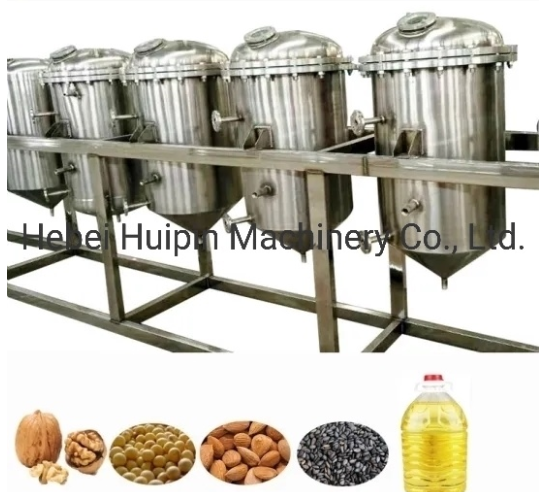Nov . 19, 2024 23:15 Back to list
oem seed to oil extractor
Understanding OEM Seed to Oil Extractors A Comprehensive Guide
In recent years, the demand for natural oils has surged due to the growing interest in health, wellness, and sustainability. From cooking oils to cosmetic products, the extraction of natural oils from seeds is becoming a vital industry. One of the most efficient and practical solutions for this need is the OEM (Original Equipment Manufacturer) seed to oil extractor. This article will explore what OEM seed to oil extractors are, how they operate, and their benefits in various industries.
What is an OEM Seed to Oil Extractor?
An OEM seed to oil extractor is a machine designed to efficiently extract oil from various seeds. This equipment is tailored by manufacturers to meet specific requirements, enabling businesses to brand and sell machines under their label. The oil extraction process generally involves either mechanical pressing or solvent extraction, depending on the type of seeds and the desired oil quality.
How Does It Work?
The oil extraction process begins with selecting the right seeds. Common seeds used include sunflower, sesame, canola, and flaxseed. The chosen seeds undergo a few preliminary steps, including cleaning and drying, to prepare them for extraction.
1. Mechanical Extraction In this method, seeds are fed into an oil press, where they are subjected to high pressure. The pressure crushes the seeds and releases the oil. It is a more natural method, preserving more nutrients and providing higher quality oil, making it popular for culinary and cosmetic applications.
2. Solvent Extraction This approach uses a solvent (often hexane) to dissolve the oil from the seeds. The mixture is then subjected to heat, allowing for the separation of oil from the solvent. While this method yields a higher quantity of oil, it may also reduce the nutritional value and require additional refining steps.
3. Refining Regardless of the extraction method, further refining may be necessary to improve oil quality. This process can involve decolorization, deodorization, and bleaching, enhancing the oil's flavor and appearance before being bottled and sold.
oem seed to oil extractor

Benefits of OEM Seed to Oil Extractors
There are multiple advantages to using OEM seed to oil extractors, making them a beneficial investment for businesses involved in oil production.
1. Customization OEM extractors can be tailored to meet the specific needs of a business, including the type of seeds they process, the volume of production, and any unique features desired. This customization ensures that businesses can optimize their operations according to their market demands.
2. Efficiency Modern OEM seed to oil extractors are designed for efficiency, allowing businesses to maximize their output while minimizing waste. High-quality machines can extract more oil per seed, significantly increasing profitability.
3. Cost-Effectiveness Investing in an OEM extractor can lead to long-term savings. By producing oil in-house, businesses can reduce costs associated with purchasing bulk oils from suppliers, pass on savings to customers, and enhance their profit margins.
4. Quality Control With an in-house extraction process, businesses maintain complete control over the quality of the oil. This control allows for better adherence to health and safety standards and ensures that the final product meets consumer expectations.
5. Sustainability The demand for sustainable products is ever-increasing. By using OEM seed to oil extractors, businesses can ensure they are utilizing natural resources effectively and responsibly, aligning with consumer trends towards eco-friendliness.
Conclusion
As the natural oil market continues to grow, the role of OEM seed to oil extractors becomes increasingly critical. They not only facilitate efficient oil extraction from seeds but also empower businesses to maintain quality control and embrace sustainability. For any company looking to enter or expand within the oil production industry, investing in an OEM seed to oil extractor represents a strategic move that can yield substantial advantages. As technology evolves, these extractors will likely continue to improve, making them an indispensable tool in the quest for high-quality natural oils.
-
Oil Processing Equipment - High-Efficiency Flaking Machine
NewsJul.25,2025
-
High-Efficiency Peanut Oil Refined Machine for Quality Oil Production Leading Exporters & Companies
NewsJul.08,2025
-
High Efficiency Sunflower Seed Oil Press – Leading Cooking Oil Press Machine Factories & Suppliers
NewsJul.08,2025
-
High-Efficiency Soybean Oil Press Machine – Leading Exporters & Reliable Companies
NewsJul.07,2025
-
High-Efficiency Seed to Oil Extractor – Reliable Extraction Machinery for Your Business
NewsJul.07,2025
-
High-Quality Pressing Screw of Oil Expeller for Efficient Oil Extraction Leading Exporters & Manufacturers
NewsJul.06,2025
